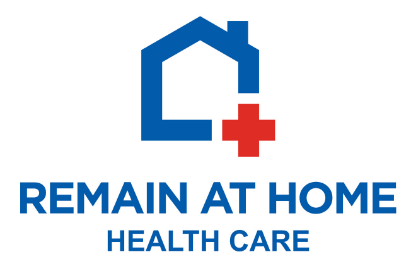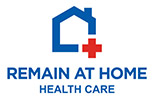In addition to providing “activities of daily life” care for the elderly (“ADL” assistance), Remain At Home Senior Care is also qualified to keeping chronically ill and debilitated patients, including those with terminal illnesses, in the place they call home. We understand patients with serious health issues are likely to face multiple hospitalizations and our licensed caregivers provide both discharge services and at-home care designed to keep patients safe and healthy in their homes, from the most basic level of care to those who have a very high level of acuity.
In regards to common debilitating illnesses, some of the more common are: Dementia, Common obstructive Pulmonary Disease (COPD), Congestive Heart Failure (CHF) and Stroke (CVA) — some of which can result in long recovery periods due to multiple surgeries and hospitalizations. RAH’s caregivers and medical director are specially trained in these and other disease-specific care and can provide clients and their families with the support and education required to help patients recover and live comfortably with their ailment(s).
RAH’s medically licensed caregivers (a mandate for employment for anyone who is providing direct client care) are trained and equipped to provide well-rounded, holistic care for a wide-array of chronic maladies. As previously mentioned, a brief description of the most common are listed below:
Dementia
Dementia is the most debilitating chronic illness our clients face. 1 in 8 older Americans have some form of Alzheimer’s disease, and this number is expected to grow as the portion of the population over age 65 continues to increase in the U.S.. By 2015, a 49% increase in cases of Alzheimer’s is expected in the state of Georgia alone. Remain At Home Senior Care was founded to help care for the growing number of seniors who need help to stay and thrive in their own homes.
“Dementia” is an umbrella term used to describe a variety of diseases which occur when nerve cells in the brain die or no longer function normally. Typical characteristics of the different types of dementia include:
Alzheimer’s disease
- Most common form of dementia; accounts for 60-80% of cases
- Difficulty remembering names and recent events
- Lack of interest in life
- As disease progresses, symptoms include impaired judgment, disorientation, confusion, behavioral changes, difficulty speaking, swallowing and walking
- Vascular Dementia
- Previously known as post-stroke dementia
- Occurs because of brain injuries from microscopic bleeding and blood vessel blockage
Impaired judgment and/or inability to make plans are the initial symptoms
Lewy Bodies Dementia
Similar to Alzheimer’s disease, but will likely include early symptoms of sleep disturbance, visual hallucinations, and muscle rigidity and Parkinson’s disease-like movement
Mixed Dementia
Characteristics include a combination of the hallmark abnormalities of Alzheimer’s disease along with another type of dementia, typically Vascular dementia
Dementia Management
All forms of dementia require active daily management, including the appropriate evaluation for medications designed to retard the progression of dementia. Patients may also need a caregiver’s help with:
- Effective management of co-existing conditions
- Coordination of care among physicians, other healthcare professionals and caregivers
- Instrumental Activities of Daily Living, including shopping for groceries, preparing meals and providing transportation
- Personal Activities of Daily Living, including bathing, dressing, grooming, feeding, toileting to manage incontinence, mobility and transferring needs
- Management of behavioral symptoms and safety issues; one fourth of hospitalizations for Alzheimer’s patients are the result of a fall
- Performing household chores
- Providing structure and routine on a daily basis, including participating in activities
Chronic Obstructive Pulmonary Disease
COPD is an acronym that describes multiple lung diseases such as chronic bronchitis, emphysema and asthma. Remain At Home Senior Care’s program for COPD is designed to educate clients and provide the support patients need on a daily basis. Our education and reinforcement program includes instruction in:
- Medication management
- Proper breathing techniques
- Energy saving techniques
- Importance of receiving the yearly flu vaccine
- Importance of frequent rest periods
- Proper fluid intake
- Infection precautions
- At-home safety guidelines, including prohibiting smokers in the home
Heart Disease
CHF (Congestive Heart Failure) occurs when the heart cannot pump enough blood to the rest of the body. Symptoms include progressive shortness of breath after minimal activity, fluid retention and swelling of the feet, and lack of energy or fatigue. CHF is one of the most common causes of hospital re-admissions. Remain At Home Senior Care’s management program works to improve patients’ quality of life and avoid hospitalization through:
- Medication management
- Proper diet
- Reduction of salt intake
- Fluid restrictions
- Proper activity and appropriate rest periods
- Daily weight recording to ensure no rapid weight gain
- Monitoring of respiration
- Monitoring of pulse
- Education on the importance of anxiety reduction
Stroke (CVA)
A stroke can be a devastating event leading to immediate family stress and the need for patient care. The obstruction of blood vessels (referred to as a thrombotic stroke) or bleeding in the brain (a hemorrhagic stroke) often results in paralysis, trouble swallowing, personality changes and speaking problems. Remain At Home Senior Care’s stroke management program is intended to help our clients and their families cope with the consequences of living with a stroke. Our program includes help with:
- All Activities of Daily Living
- Promotion of independence in all areas of the client’s life
For strokes with a high level of acuity, care also includes:
- Medication management
- Frequent patient turning
- Incontinence maintenance
- Meal preparation and feeding
- Mouth care
- Modifying the home to accommodate a wheelchair
- Supplying safety equipment for the bath or shower
Post-Surgical Recovery
Any major surgery is a traumatic event to the human body. Remain At Home Senior Care offers post-surgical management for seniors who need help recovering at home. Care includes:
- Medication management
- Wound care
- Assistance with Activities of Daily Living
- Light housekeeping
- Grocery shopping, errands and medication pick-up
- Cooking
- Laundry
- Mobility assistance and/or transferring assistance
Hospice Care
Many patients with acute illnesses become terminally ill. Hospice is a great help for these patients and provides needed patient and family support in times of instability and stress. Remain At Home Senior Care works in conjunction will all facets of this highly-specialized form of care. Our Director of Client Advocacy (RN) is always in close touch with the hospice provider to coordinate the client’s specific plan of care, as is our Chief Medical Director (MD).
For clients receiving hospice care, Remain At Home Senior Care can provide the skilled, bedside nursing that hospice patients require while allowing the family to be just that — the family. Our caregivers are experienced in hospice care and can afford you and your loved ones the luxury of quality time spent together without worrying about the physical and medical challenges that are present when caring for a hospice patient.
Home Health
The majority of RAH’s client base consists of those clients who are seeking curative care. For those who are officially designated as “home-bound,” RAH will work in-tandem with all of the many home-health agencies located in northeast GA. Ultimately, RAH “translates” the wants and wishes of the client and their families by providing ultimate oversight of all aspects of care plan management.

